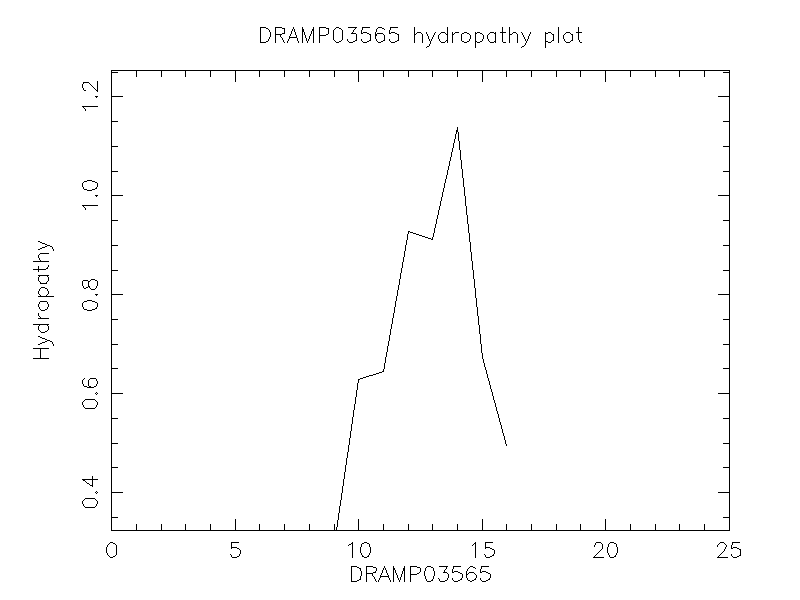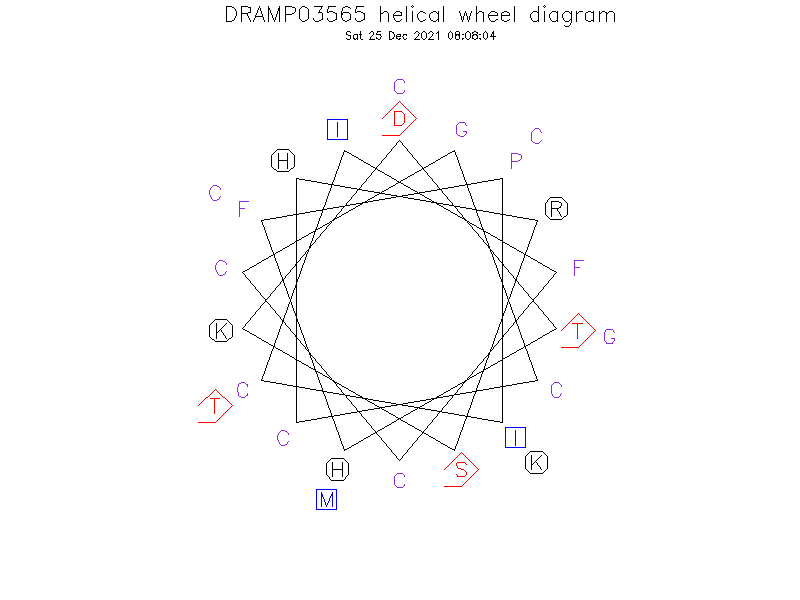General Information
Activity Information
-
Biological Activity
- Antimicrobial, Antibacterial, Anti-Gram+, Anti-Gram-, Antifungal
-
Target Organism
-
- Gram-negative bacterium: Escherichia coli;
- Gram-positive bacteria: Staphylococcus aureus, S. epidermidis, group B Streptococcus.
- Fungi: Candida albicans, Aspergillus fumigatus, Aspergillus niger.
-
Hemolytic Activity
-
- No hemolysis information or data found in the reference(s) presented in this entry
-
Cytotoxicity
-
- Not included yet
-
Binding Target
- DNA
Structure Information
-
Linear/Cyclic
- Not included yet
-
N-terminal Modification
- Not included yet
-
C-terminal Modification
- Not included yet
-
Nonterminal Modifications and Unusual Amino Acids
- Not included yet
-
Stereochemistry
- Not included yet
-
Structure
- Beta strand
-
Structure Description
- N-terminus is a metal-binding site. disulfide bonds are essential for antibacterial activity by probably binding to DNA.
-
Helical Wheel Diagram
-
Predicted Structure
- There is no predicted structure for DRAMP03565.
Physicochemical Information
-
Formula
- C113H178N34O31S9
Absent Amino Acids
- AELNQVWY
Common Amino Acids
- C
Mass
- 2797.41
PI
- 8.22
Basic Residues
- 5
Acidic Residues
- 1
Hydrophobic Residues
- 4
Net Charge
- +4
-
Boman Index
- -22.33
Hydrophobicity
- 0.388
Aliphatic Index
- 31.2
Half Life
-
- Mammalian:1.1 hour
- Yeast:3 min
- E.coli:>10 hour
Extinction Coefficient Cystines
- 500
Absorbance 280nm
- 20.83
Polar Residues
- 13
DRAMP03565

Comments Information
PTM
- Contains four disulfide bonds 7-22; 10-13; 11-19; 14-22.
Tissue specificity
- Highest expression in liver and to a lesser extent in heart and brain. Low levels in lung, tonsils, salivary gland, trachea, prostate gland, adrenal gland and thyroid gland. Secreted into the urine.
Function
- It showed antimicrobial activities in vitro, this peptide might be the long-sought hormone that regulates iron homeostasis in humans. A pathogen will survive if it can figure out a way to steal iron from the host.
Literature Information
- ·Literature 1
-
Title
- LEAP-1, a novel highly disulfide-bonded human peptide, exhibits antimicrobial activity. ref2) Hepcidin, a rinary antimicrobial peptide synthesized in the liver.
-
Pubmed ID
- 11034317
-
Reference
- FEBS Lett. 2000 Sep 1;480(2-3):147-150.
-
Author
- Krause A et al Adermann K.
- ·Literature 2
-
Title
- Hepcidin, a urinary antimicrobial peptide synthesized in the liver.
-
Pubmed ID
- 11113131
-
Reference
- J Biol Chem. 2001 Mar 16;276(11):7806-7810.
-
Author
- Park CH, Valore EV, Waring AJ, Ganz T.
- ·Literature 3
-
Title
- The solution structure of human hepcidin, a peptide hormone with antimicrobial activity that is involved in iron uptake and hereditary hemochromatosis.
-
Pubmed ID
- 12138110
-
Reference
- J Biol Chem. 2002 Oct 4;277(40):37597-37603.
-
Author
- Hunter HN, Fulton DB, Ganz T, Vogel HJ.
- ·Literature 4
-
Title
- Hepcidin revisited, disulfide connectivity, dynamics, and structure.
-
Pubmed ID
- 19553669
-
Reference
- J Biol Chem. 2009 Sep 4;284(36):24155-24167.
-
Author
- Jordan JB, Poppe L, Haniu M, Arvedson T, Syed R, Li V, Kohno H, Kim H, Schnier PD, Harvey TS, Miranda LP, Cheetham J, Sasu BJ.

